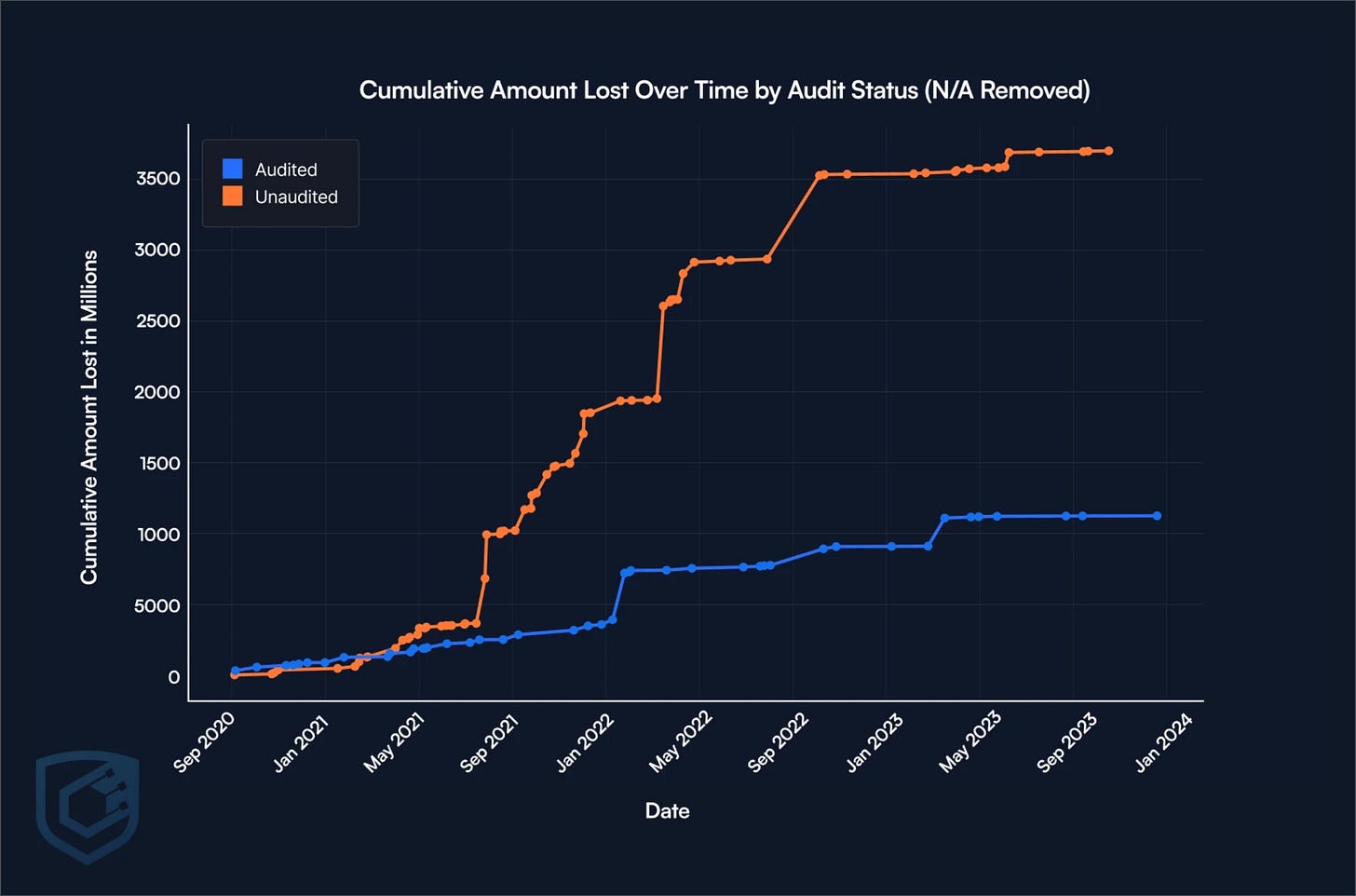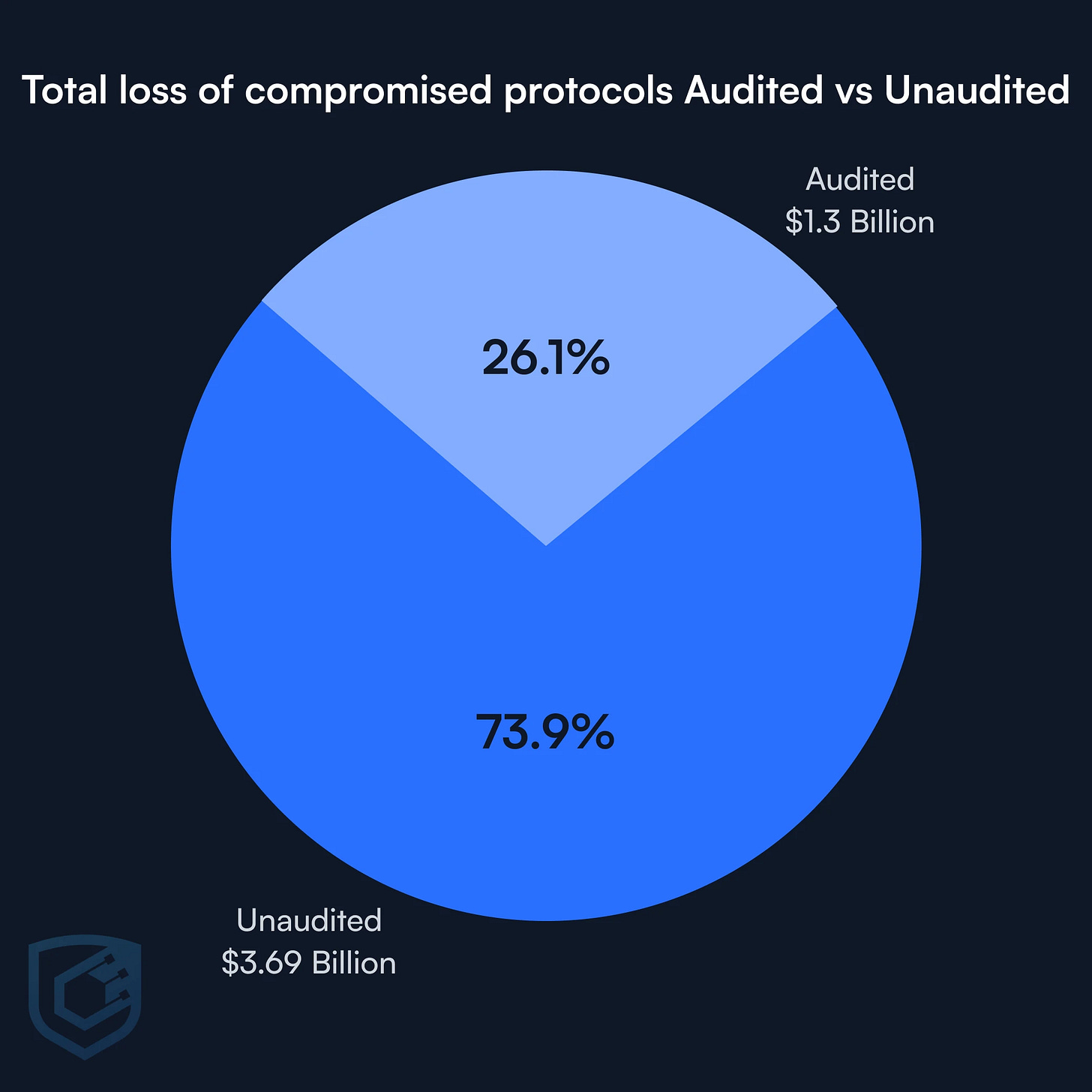The secrets behind private and competitive audits
Heyo,
Jules here, from Cyfrin.
Spending ~$20,000 in an audit could save you approximately $2,000,000 in hacks. That’s a 99% ROI.
Audits are helpful when it comes to preventing hacks, yet how to know when to choose private audits over competitive audits?
The secrets behind competitive and private audits
Types of audits
Private Audits are security reviews where a firm or solo auditor takes a deep dive into your protocol, providing a detailed report of the codebase including architecture reviews, proofs of concept, best practices, among others.
Example: CyfrinCompetitive Audits, on the other hand, gather multiple auditors from around the world to review your protocol, competing for a reward based on vulnerabilities found and their uniqueness and impact.
Example: CodeHawks
Should you do both?
The answer is yes. However, if you have to choose, keep in mind that:
Private audits focus in depth. They produce detailed reports, architecture reviews, and review best practices before your protocol is ready for mainnet.
Competitive audits focus on breadth. Because they have hundreds if not thousands of auditors looking at your code, their various skill sets provide a more well-rounded view.
Key things to consider
Primary benefits
Private audits enable a close-knit partnership with the auditing firm. This means that auditors often embed themselves within engineering teams to better understand codebases, provide full support and produce detailed, actionable insights on improving your codebase.
Competitive audits offer multiple perspectives and help unearth “blind spots” thanks to their competitive nature, rewarding unique, impactful vulnerabilities.
Limitations
Private audits usually incur a higher upfront cost since you have a dedicated team of high-quality researchers looking at your codebase.
Competitive audits, on the other hand, will get you more auditors for a better price, but the quality depends on a variety of factors, and there is no continuity for support.
Cost
For both, costs depend largely on the size of the codebase and its complexity.
Private audits from solo auditors may cost anywhere from $5k-$10k a week, whereas auditing firms usually range from $20-30k a week.
Competitive audit costs are structured based on the prize pool for the contest. These usually range from $35k to $ 150k (with some rewarding up to $1M).
Project’s stage
Private audits work best for both live and pre-launch projects, including those going through upgrades.
Competitive audits cast a wide net of vulnerabilities, so they are best for pre-launch protocols.
Conclusion
If you’re still unsure of which type of audit is best for you, make sure to reach out to us here, and we’ll be more than happy to support you.
Protocols ideally go through both types of audits to get a full spectrum review of their codebase. When this is not possible, looking at which type of audit is best to optimize resources is key to keeping your assets and users safe.
— You can read the full article here: https://www.cyfrin.io/blog/competitive-vs-private-audits-comparison
Additional resources
🕵🏻♀️ Want to hire a private audit? Here’s the top 10 smart contract auditing firms in the market today.
💰 Here’s a deeper dive on what are smart contract audits and how they differ from traditional software audits.
📚 Everything you need to know about the salary of a smart contract auditor.
Always feel free to reach out if there’s anything we can support or collaborate on.
Sending lots of cyber love,
Jules 🤸🏻





